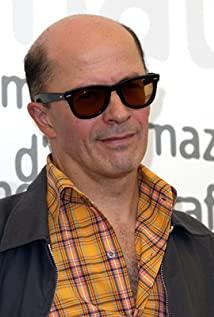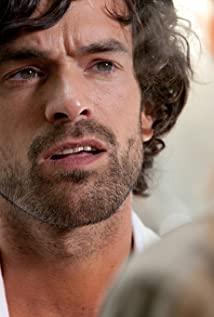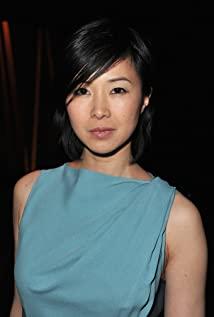"The Rhythm My Heart Forgot" may not be Jacques Audiard's most famous work, but it is the film that has earned him the most awards, including eight awards in the French Caesar Awards alone. The inspiration for this film came from an unknown American gangster film in the 1970s. It is hard to imagine why a French literary director would remake a film that is irrelevant. But Audia said "Fingers" was a fond memory of his childhood, and he was impressed with the performance of star Harvey Keitel. "The Rhythm of My Heart Forgotten" retains some elements of "Finger", but most of the plot was adapted by the director to suit the French situation.
From the very first act, the director endowed the film with an undercurrent of tension, like the rolling thunder behind the dark clouds. This tension is complemented by the restlessness in protagonist Thomas Sell. On the surface, Thomas is a real estate businessman, but in essence, what he does is shameful illegal behavior. Most of the work is to use intimidation and violence to drive away residents or refugees living in low-cost apartments, and then relocate these properties. Eat it and sell it to other developers at a high price. So his life was always full of violence and chaos.
At the same time, there are two other people in Thomas's life who are worried. One is his father, who was also engaged in illegal real estate business in widowhood for many years, and his girlfriends changed one after another. Moreover, when he is old, he often needs his son to come forward to solve injustices in business; the other is his friend and colleague Fabrice, who always asks him to help him lie and cover up in front of his wife, and help her to go out in secret. Women, make him troublesome. Ironically, he had an infatuation with Fabrice's wife, and once she exposed the lie to her face, it sparked an incestuous relationship between the two.
According to the personality structure theory of Sigmund Freud, the founder of psychoanalysis, people are composed of three levels: "id", "ego" and "superego". The "id" is the original, innate structural part of the subconscious, which contains some instinctive impulses that are closest to the animal nature in human nature. It ignores social morals and external norms of behavior, and acts according to the principle of pleasure. The only requirement is to obtain pleasure and avoid pain. The "self" is the structural part of consciousness, and its function is to supervise the "id" and to satisfy the impulse to seek the "id", while at the same time protecting the entire body from harm, following the principle of reality and serving the "id". The "superego" is the most moral part of the personality, representing conscience and self-ideal. It is at the highest level of the personality and acts according to the principle of perfection.
In short, the "id" is the repository of various instincts and desires; the "superego" is the superstructure of moral teachings, ethical rules, religious teachings, etc., and the "id" and "superego" enter our consciousness. "The result of the wrestling. Applying to Thomas, his life is basically dominated by his "I", and his usual illegal behaviors, such as letting mice scare away residents, destroying houses to drive away refugees, threatening tenants with sticks and knives, and even dating his friends. The wife's incestuous relationship is the result of her inner tyranny and desire. However, we will also find that Thomas doesn’t actually like this kind of life. He is tired of being violent to others, tired of helping Fabrice tell lies, and even deep down he is “loyal” to Fabrice’s wife. obligations and requirements.
From this point of view, Thomas still retains a certain degree of "superego" consciousness. In fact, it was "music" that gave him a sense of tranquility in his turbulent life. In other words, the ideal and pursuit of music is his biggest "superego" part. In another thread of the film, he once ran into his mother's former music manager, and talked about a topic that might help him in his piano performances. Influenced by his mother since childhood, Thomas has considerable talent in music and has a complete set of musical equipment at home, but the death of his mother and the state of his life made him drift away from music. It was this encounter with the manager that rekindled Thomas's vision for music. In order to prepare for the piano audition, he devoted himself to piano practice, and also found a Vietnamese female student studying music in France for daily tutoring.
It can be said that in Thomas' growth, the influence of family relationships is extremely huge. If the mother is the spokesperson of his "superego", then when his mother died early, the father who spoke for the "id" gained the upper hand. Under his words and deeds, Thomas not only engaged in a career similar to his father's, but his character became Perverse and irritable, his words and deeds are vulgar, and his love for music has shifted from piano to electronic music. However, once re-contacted with the piano, his "superego" came back little by little. If Fabris's wife satisfies Thomas's desire for women, then Miao Lin, a Vietnamese female student, seems to fill the lack of "spirituality" in women. So, in the constant ebb and flow of the "id" and the "superego", Thomas slowly undergoes some kind of transformation.
Of course, two things were decisive for the turning point in his life. One is the failure of the piano audition. In front of the manager, he has never been able to perform at the level of his usual practice, which may be destined to be unsuitable for him to perform on stage. People were beaten to death in the apartment, and Thomas witnessed the tragedy and was devastated. Then, the film suddenly transitions to two years later, and the chaotic past is completely separated. Thomas is already a music manager, and his client is the Vietnamese girl Miao Lin who taught him the piano at the time, and it can be seen that the two are still in touch. developed to the stage of love. One night, at Miao Lin's concert, Thomas happened to meet the Russian businessman who killed his father before entering the venue. The two fought each other. Thomas grabbed each other's pistol, but did not pull the trigger. It indicates that now the "superego" has the upper hand, he has love and music, and will no longer be lost in anger and hatred.
Overall, Jacques Audiard has successfully adapted the dark and pessimistic story in the original "Finger" into a literary film that pays more attention to the character's heart and explores the psychological characteristics of the characters, with a European style. And Romain Duchy perfectly interprets the role of "Thomas Sell" with his explosive performance, showing the characters who are addicted to violence, love music, and have been struggling with inner struggles and self-struggles. "Id", "ego" and "superego" constitute the complete personality of human beings, but they are constantly in conflict for psychological energy. The "ego" exists forever, while the "id" and "superego" are in permanent opposition. In order to coordinate the contradiction between the two, the "ego" needs to be adjusted. For each of us, the struggle of "I" runs through almost our whole life, and the different ways of distributing our mental energy constitute different realms of life.
♑
View more about The Beat That My Heart Skipped reviews











